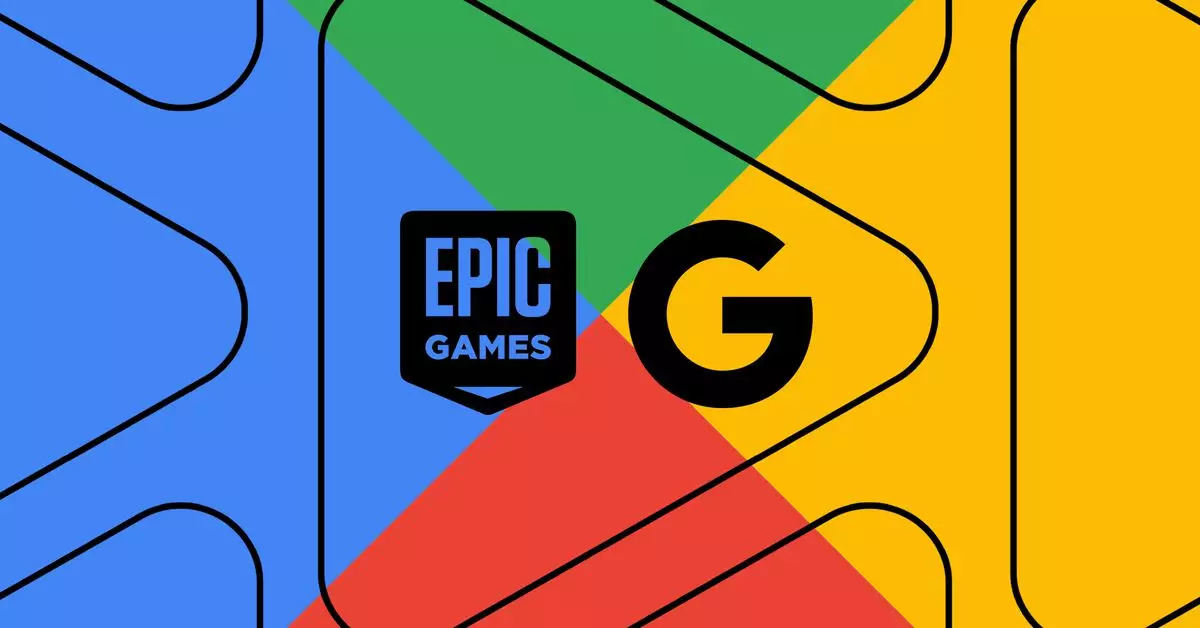In a groundbreaking move, Telefónica, one of the largest telecommunications firms globally, has announced a strategic partnership with Epic Games to preinstall the Epic Games Store on every new compatible Android phone it sells. This decision includes popular devices like Samsung smartphones, marking a significant step in the ongoing battle for app store supremacy. As Epic aims to diversify its influence beyond gaming, this collaboration suggests that the mobile landscape might be on the verge of a major transformation—one that could challenge the dominance of established players like Google.
Epic Games’ determination to expand its reach into the mobile market stems from its desire to disrupt Google’s perceived monopoly over the Android app ecosystem. For years, the Google Play Store has been the go-to destination for Android users. However, a recent legal victory for Epic Games in the case of Epic v. Google has raised questions about the fairness of Google’s practices. The federal jury sided with Epic, concluding that Google’s operations constituted an illegal monopoly. This ruling not only vindicated Epic’s claims but also opened doors for alternative platforms like the Epic Games Store to gain traction.
Telefónica’s decision to preinstall the Epic Games Store represents a paradigm shift. No longer are game publishers left at the mercy of gatekeepers. Instead, Epic and Telefónica are essentially bypassing Google’s restrictions by ensuring that users have direct access to an alternative store that features not only games but potentially other types of applications in the future.
Historically, Epic Games has faced hurdles in its attempts to have its software preinstalled on mobile devices. Its previous efforts included negotiating deals with various phone manufacturers and carriers. While some companies like Samsung and LG initially showed interest, bureaucratic red tape and Google’s powerful influence proved to be stumbling blocks. For instance, in some cases, potential partners were reportedly deterred by Google’s contracts and policies designed to maintain its control over the app distribution ecosystem. This newly announced partnership with Telefónica, however, signifies that there are still companies willing to push back against Google’s stronghold.
The preinstallation of the Epic Games Store promises to provide a seamless onboarding experience for users, particularly for those keen on access to titles like Fortnite from the get-go. Once Telefónica begins rolling out devices with the Epic Games Store included, it may fundamentally change how users discover and engage with games on Android.
For users, this development is a double-edged sword. On one hand, the preinstallation could democratize access to games and create healthy competition in mobile software distribution, potentially resulting in better pricing and more choices for consumers. As Epic grows its ecosystem, users may also benefit from evolving features and a wider range of applications. This could ultimately lower dependence on the Google Play Store, fostering innovation in the mobile space.
On the other hand, increased fragmentation of app stores could lead to confusion among users who value simplicity and consistency in their digital experiences. The growth of the Epic Games Store serves as a reminder that as competition increases, there can be both positive developments and unintended consequences.
As the partnership between Telefónica and Epic Games unfolds, several questions linger regarding the future of mobile gaming and app distribution. Will other carriers and manufacturers follow suit? How will Google respond to this direct challenge from Epic? With ongoing legal battles and reshaped alliances, the mobile market is more dynamic than ever.
Ultimately, the preinstallation of the Epic Games Store signals potential disruptions to the long-standing business models that have dominated mobile app distribution. As Epic Games broaden its horizons and Telefónica’s ambitious strategy unfolds, the mobile landscape stands at a crossroads—one that could redefine the rules of engagement between consumers, developers, and platforms.


Leave a Reply
You must be logged in to post a comment.